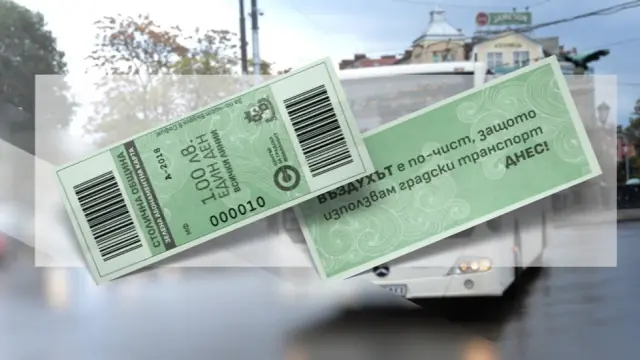
Sofia’s Municipal Council is set to discuss a new policy aimed at reducing air pollution in the Bulgarian capital. The proposal, introduced by Deputy Mayor Nadezhda Bobcheva and supported by four councilors from the WCC-DB-SS coalition, focuses on offering affordable public transport options on days when pollution levels are particularly high.
The central idea behind the proposal is to provide incentives for residents to use public transport during days of elevated air pollution, especially on days when fine particulate matter (PM), known to be harmful to health, reaches dangerous levels.
The new system would introduce two types of tickets—green and white—designed to ease the burden on the city’s public transport network while encouraging environmentally-friendly travel.
According to the plan, a green ticket priced at just 1 leva would be available for the entire public transport network, including buses, trams, and the metro, on days when pollution levels exceed a threshold defined by the Ministry of Environment.
In cases of extremely high air pollution, a white ticket would be made available for free. This initiative aims to minimize the number of cars on the road during periods of poor air quality, which is expected to significantly improve air quality over time.
Currently, Sofia’s air quality is classified into four pollution levels based on particulate matter readings, ranging from up to 100 µg/m3 to over 200 µg/m3.
However, the new proposal seeks to introduce a more granular approach to pollution levels, with finer distinctions between different ranges.
These categories would include levels up to 45 µg/m3, 46 to 75 µg/m3, 76 to 100 µg/m3, 101 to 150 µg/m3, and levels above 150 µg/m3.
Additionally, the proposal would include finer measurements of particulate matter—specifically FP 2.5 (2.5 microns in diameter), which is particularly hazardous to health, and nitrogen dioxide excesses, both of which were not previously considered.
If approved, the new system would trigger the issuance of green tickets when particulate matter (FP 10) surpasses 100 µg/m3 at two of Sofia’s eight licensed Ministry of Environment stations or when FP 2.5 readings reach between 51 to 75 µg/m3.
A white ticket would be issued for free if the pollution level exceeds 150 µg/m3. On such days, the Center for Urban Mobility would be tasked with reducing the time intervals between public transport services to ensure that the transport network can accommodate the expected increase in demand.
The proposal aims to address Sofia’s long-standing air pollution challenges, which have often been exacerbated by traffic congestion and industrial emissions.
By encouraging the use of public transport on days of poor air quality, the city hopes to reduce the number of private vehicles on the roads, which contribute significantly to pollution.
Residents and environmental groups have expressed support for the initiative, which they believe will help raise awareness about the dangers of air pollution while offering practical solutions for mitigating its impact.
However, there is some concern about the feasibility of implementing such a plan, particularly regarding the readiness of the city’s public transport system to handle a potential surge in passengers on high pollution days.
The Sofia Municipal Council is expected to vote on the proposal in the coming weeks, with many hoping that it will mark a significant step toward improving air quality in the city.
If passed, the new ticket system will take effect in the near future, making public transport a more attractive and environmentally-friendly option for residents.
